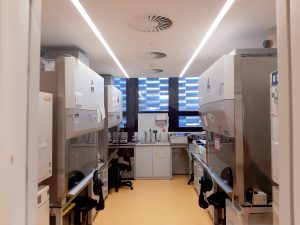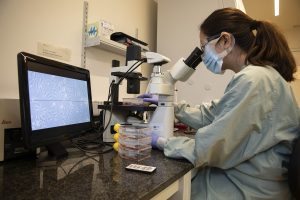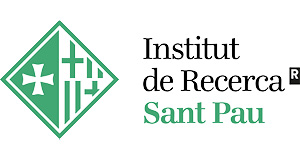Cell culture platform
Equipment
The service consists of different facilities where you can work with both primary cultures obtained from human tissues and experimental animals, as well as continuous cell lines and Genetically Modified Organisms (GMOs) level I and II. In each of the facilities users have the appropriate and basic equipment needed to obtain and maintain cell cultures: laminar flow booths and biological safety booths (a total of 25), CO2 incubators (28) , stoves, centrifuges, water baths, inverted microscopes, scales, vacuum traps, cell counters, refrigerators, freezers (-20 and -80 ° C), hybridization ovens and autoclaves.
These facilities include equipment such as: special biosafety booths to work with cytostatic and / or nanoparticle products, microscopes with fluorescence and image capture, binocular microscopes with lighting and display screen, particle counter , UV stations, nucleofection equipment.
In addition, the service has hypoxia stations, a laboratory restricted by the use of radioactivity in crops, a laboratory to carry out bacterial cultures and a laboratory where biological samples can be processed (unrelated with the obtaining of crops) that require manipulation in conditions of biosecurity.





